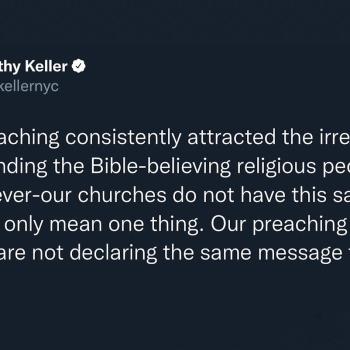We’re now one month into 2018 and many (if not most) New Year’s resolutions have been dropped. For those who have resolved to read the Bible more here’s my advice: don’t do devotions or study the Bible. Before going on, I must say that both of those are good things, yet too often Christians separate them from each other as if devotions and study were oil and water. Not all consciously separate devotions and study, but in practice many do; either only doing devotions or only studying. Such a dichotomy separates application from the original meaning of the text. On the devotional side we have application unhinged from the original context and governed by the whims of the reader. On the other we have the original meaning left in the dust of the path with no relevance for today.
For those that “do devotions” but do not study, they might follow a “Bible in a Year” type plan, read a chapter a day, or read out of a different Christian book. These are all good things. Christians should be soaked in the Word of God and devote time to reading it for personal edification. Unfortunately, in their desire to read the Bible and apply it to their lives, many Christians can fall into the trap of reading the Bible apart from its original context. Perhaps in reaction to some who (wrongly) assert that the Bible is just an ancient document with no more relevance to today than any other, there has been a swing of the pendulum too far in the other direction. Some Christians’ desire to make the Bible relevant to their everyday lives disregards the original context in which it was written. One can see this done all the time – Abraham, Isaac, and Jacob become object lessons for a parenting class, David becomes an example of how to overcome our “giants,” Paul’s teaching on our identity in union with Christ becomes a booster for “self-esteem,” and on and on it goes.
I must at once say that it is not a bad thing to want to apply the Bible (I’ll deal more specifically with those who don’t in the next paragraph). Applying the Bible to our lives is a necessary practice for every Christian. Nevertheless, we need to recognize that any application of the Bible which does not arise from the original meaning of the text is not an application of the Bible but of the reader’s own invention. While in many cases such application is in general harmless (often it is a good application from the wrong text), it can be a very dangerous thing. It can be dangerous because if we read the Bible simply for devotional application, when we apply it to our lives we deceive ourselves into thinking that we are obeying God but in reality we are obeying our own invention. Unfortunately, this type of reading is promulgated by the many different “verse a day” apps and such. Context always determines meaning, each word only has meaning in the context of its sentence, a sentence has meaning in the context of its paragraph, a paragraph has meaning in the context of its section, etc. We can broaden this principle out to include the whole Bible.
The second way of reading the Bible, which I have called “study,” pays close attention to the original meaning of the text, yet does not see that it has any relevance for today. This type of reading is just as dangerous as the first and just as wrong. Unfortunately this type of reading can often appeal to those who like an intellectual challenge or puzzle, to them the Bible just becomes a puzzle to “figure out,” not the living word of God that pierces the soul (Hebrews 4:12). This type of reader deceives himself into believing he understands the Bible when has figured out what the original meaning was, but then leaves it in the past and does not examine how it should change his life. Such a type of reading is akin to the dead faith that James attacks in his book; we must be a doer of the word and not a reader only (James 1:22).
Reading the Bible intellectually is important. We need to know how subordinating clauses work, i.e. whether or not “for” indicates a reason or a purpose. We need to recognize when “all” means “all without exception” and when it means “all without distinction.” We need to understand what each “therefore” or “nevertheless” means in its context. Yet once we have understood these things, if we leave them without any application for today we have not truly understood them. If we closely analyze all of Scripture’s teaching about the dangers of riches and correctly dismiss the interpretation that the “eye of the needle” was a gate into Jerusalem, yet don’t then get rid of all greed and desire for wealth in our own lives, we have not correctly comprehended what the Bible says and will fall into the very snare we have studied (1 Timothy 6:9).[1]
Therefore, I believe the common division between devotional and intellectual reading of the Bible is unhelpful at best and harmful at worst. It lets the devotional readers off the hook of doing the hard work of studying the text and lets the intellectual readers off the hook of doing the hard work of living out what the Bible says. Each way does not do justice to the Bible as the very Word of God. As the Word of God, it demands full and rigorous study. It is not possible to understand it too well; and if we think that we have ever plumed the depths of its meaning we are only deceiving ourselves. As the Word of God it demands our complete and exact obedience. It reveals God’s standard to which we must conform our lives; and if we think we it does not require any change in us we are only deceiving ourselves.
We should not do devotions or study the Bible, we should do devotions and study the Bible – at the same time.
[1] Reading devotional books is a good practice, but by no means a necessary one in order the apply the Bible. The Bible itself often gives us the application if we pay close enough attention – which is another reason why you have not truly understood the Bible if you do not apply it.













